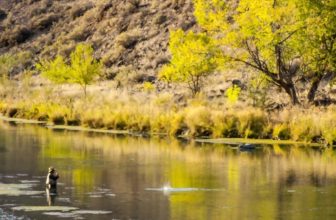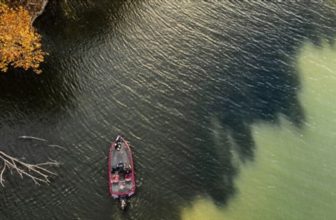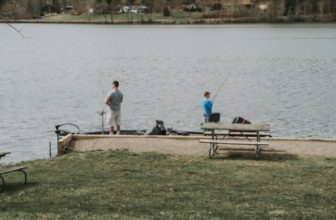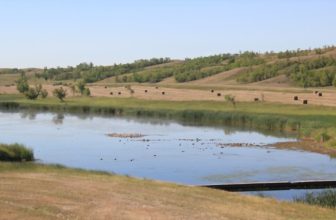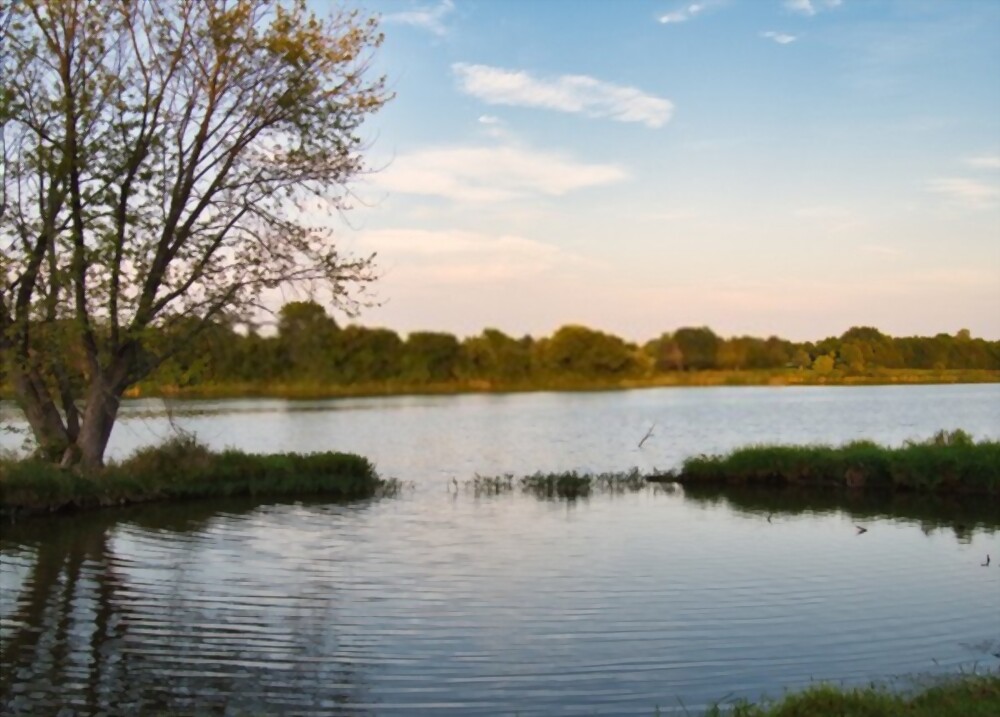
Kansas Fishing License
Are you planning a fishing trip in Kansas? If so, you’ll need to make sure you have a valid fishing license before casting your line. Whether you’re a resident or non-resident, Kansas has specific regulations and requirements for obtaining a fishing license.
In this article, we’ll provide you with all the information you need to know about Kansas fishing licenses, including who needs one, the different types available, where to purchase them, and regulations and restrictions you’ll need to follow.
Before you hit the water, it’s important to understand the rules and regulations for fishing in Kansas. The state has a variety of fishing opportunities, from public lakes and reservoirs to rivers and streams. However, each location may have different rules and restrictions, so it’s important to be informed before you start fishing.
In addition, Kansas offers a range of fishing licenses to suit different needs, from daily and annual licenses to youth and senior options. So, let’s dive in and learn more about Kansas fishing licenses!
Who Needs a Kansas Fishing License?
If you’re planning to fish in Kansas, you’ll need to make sure you have a valid fishing license. In Kansas, anyone who is 16 years or older is required to have a fishing license before they can fish in public waters. This applies to both residents and non-residents of the state. If you’re caught fishing without a valid license, you could face a fine or even legal charges.
There are several different types of fishing licenses available in Kansas. The most common licenses are the annual fishing license, which is valid for one calendar year, and the 24-hour fishing license, which allows you to fish for 24 consecutive hours. There are also shorter-term licenses available, such as the 7-day fishing license and the 14-day fishing license. Depending on your needs, you may want to choose one of these shorter-term licenses instead of an annual license.
It’s important to note that there are some exceptions to the Kansas fishing license requirement. For example, if you’re fishing on private land with the landowner’s permission, you don’t need a license. Additionally, there are certain free fishing days throughout the year where anyone can fish without a license. However, these free fishing days are limited, so it’s still a good idea to get a license if you plan on fishing frequently.
Types of Kansas Fishing Licenses
You can choose from a variety of licenses depending on the type of fishing you plan to do. Here are some of the types of Kansas fishing licenses available for purchase:
- Resident Annual Fishing License: This license is valid for 365 days from the date of purchase and is only available to Kansas residents.
- Non-Resident Annual Fishing License: This license is also valid for 365 days from the date of purchase, but is available for purchase by non-residents.
- One-Day Fishing License: This license is valid for the day of purchase and is ideal for those who only plan to fish for a short period of time.
It’s important to note that there are also youth and senior discounts available for some of these licenses. Additionally, there are different types of licenses for different types of fishing, such as trout stamps for those planning to fish for trout.
Make sure to research which license is best for your needs before making a purchase.
By taking the time to research and purchase the right Kansas fishing license, you can ensure that you’re fishing legally and responsibly. Plus, with a variety of licenses available, you can choose the one that works best for you and your fishing plans.
So before you hit the water, make sure you have the proper license to avoid any legal issues.
Where to Purchase a Kansas Fishing License
Looking to hit the water and reel in a big catch? Here’s where to snag the necessary permit. When it comes to purchasing a Kansas fishing license, there are several options available to you. These include online, in-person, and by phone.
For those who prefer a more convenient and hassle-free option, buying a Kansas fishing license online is the way to go. You can do this by visiting the Kansas Department of Wildlife, Parks and Tourism’s website and following the instructions provided. Not only is this option available 24/7, but it also allows you to print your license immediately after purchase.
If you prefer a face-to-face interaction, you can purchase a Kansas fishing license in-person at any of the state’s authorized vendors. These include sporting goods stores, bait and tackle shops, and even some convenience stores. Another option is to call the Kansas Department of Wildlife, Parks and Tourism and purchase your license over the phone. Whichever option you choose, make sure to have the necessary information and payment method ready to make the process as smooth as possible.
So whether you prefer the online route, the in-person option, or buying over the phone, there’s a way to purchase a Kansas fishing license that suits your needs. Don’t let a lack of a permit keep you from enjoying all the great fishing that Kansas has to offer. Get your license today and hit the water with confidence!
Regulations and Restrictions for Kansas Fishing
When planning your next fishing trip in Kansas, it’s important to be aware of the regulations and restrictions in place to ensure a safe and enjoyable experience.
First and foremost, anglers must possess a valid Kansas fishing license and follow the seasonal fishing dates for each species. For example, the season for trout fishing typically runs from November 1 through April 15, while the season for bass fishing is open year-round.
In addition to seasonal restrictions, there are also specific rules regarding the size and amount of fish that can be caught. For example, largemouth and smallmouth bass must be at least 18 inches in length before they can be kept. Similarly, anglers are limited to catching no more than five trout per day. It’s important to carefully read and understand these regulations before heading out on your fishing trip to avoid any potential fines or penalties.
Finally, it’s important to note that there are also restrictions on the types of equipment that can be used for fishing in Kansas. For example, the use of explosives, firearms, or electric shock devices is strictly prohibited. It’s also important to properly dispose of any fishing line or tackle to avoid harming wildlife or damaging the environment.
By following these regulations and restrictions, you can help ensure a safe and sustainable fishing experience in the great state of Kansas.
Tips for a Successful Kansas Fishing Trip
Planning a successful Kansas fishing trip? Here are some tips to help make your experience enjoyable and memorable.
Firstly, research the area you plan to fish in. Kansas has a variety of lakes and rivers, each with their own fishing regulations and species of fish. Knowing this information beforehand will help you choose the best location and gear for your trip.
Secondly, timing is key. Consider the time of year and weather conditions when planning your trip. Spring and fall are usually the best times to fish in Kansas, as the water temperature is ideal for most species. Also, check the weather forecast before heading out and be prepared for any changes.
Lastly, don’t forget to bring the right gear. Make sure you have a valid fishing license, as well as appropriate fishing equipment for the species you plan to catch. Don’t forget to bring sunscreen, insect repellent, and plenty of water to stay hydrated.
With these tips, you’ll be well on your way to a successful and enjoyable Kansas fishing trip.
Frequently Asked Questions
Can non-residents purchase a Kansas Fishing License?
Yes, non-residents are able to purchase a Kansas fishing license. It’s important to check the specific regulations and fees for non-residents before purchasing. You can obtain a license online or at a local vendor.
Are there any age restrictions for obtaining a Kansas Fishing License?
You must be a certain age to obtain a Kansas fishing license. The age requirement may vary depending on the state. Check with your local fishing authority for specific age restrictions.
Can a Kansas Fishing License be transferred to another person?
You cannot transfer a fishing license to another person. Each license is issued to a specific individual and cannot be shared or transferred. You must obtain your own license to legally fish in Kansas.
Is there a limit on the number of fish that can be caught in one day with a Kansas Fishing License?
You can catch a certain number of fish per day depending on the species and location. It’s important to check the regulations for the specific area you plan to fish in to avoid any penalties or fines.
Are there any specific locations where a Kansas Fishing License is not valid?
Your Kansas fishing license may not be valid on certain tribal lands and privately-owned ponds or lakes. Check with the specific location before fishing to ensure you have the proper permits.
Conclusion
Overall, if you plan on fishing in Kansas, you’ll need to obtain a valid fishing license. The state offers a range of options for residents and non-residents alike, including annual and short-term licenses.
Make sure you understand the regulations and restrictions in place for fishing in Kansas, including bag limits and size restrictions, to avoid any penalties or fines.
And don’t forget to take advantage of the many bodies of water in the state, from lakes and reservoirs to rivers and streams, to increase your chances of a successful fishing trip.
With the right preparation and knowledge, you can enjoy a memorable day on the water in Kansas.



